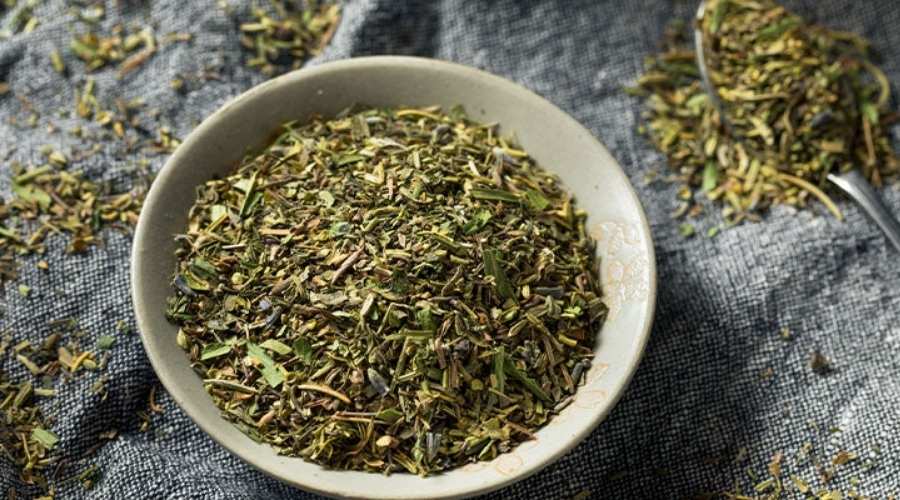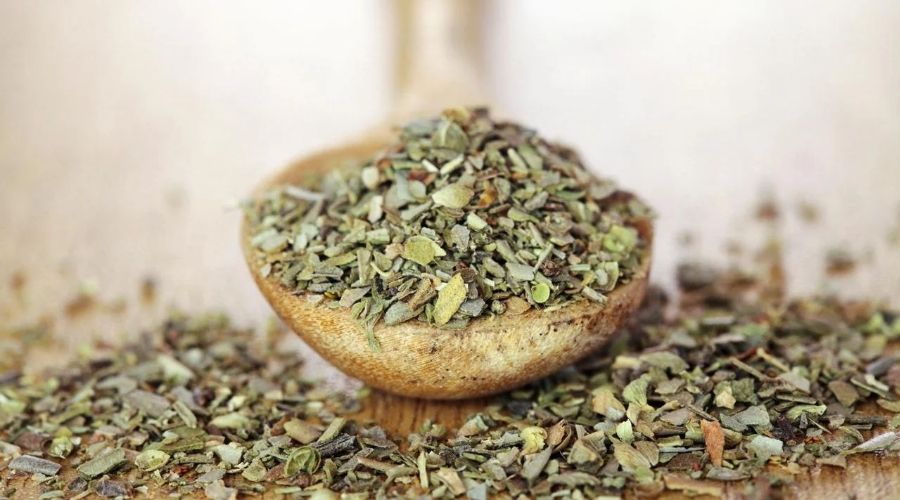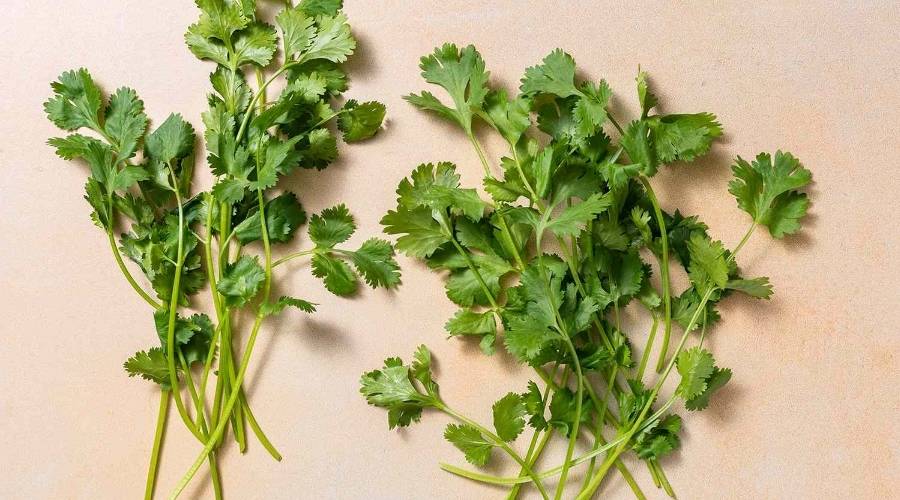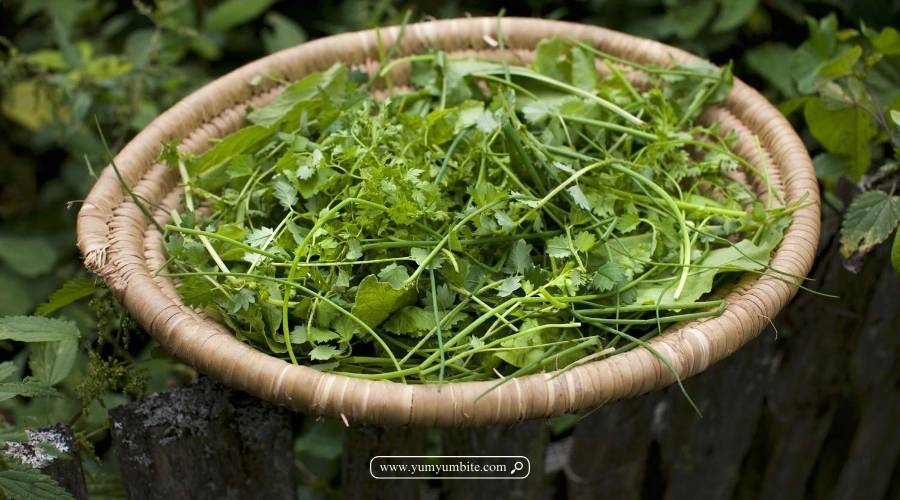Fine herbs are a classic blend of delicate herbs used to add subtle, nuanced flavors to a variety of dishes.
Traditional fine herbs typically include parsley, chives, tarragon, and chervil, and they are often used in French cuisine to enhance the taste of sauces, soups, and salads.
However, what do you do when you run out of these herbs or can’t find them at your local store?
Luckily, there are numerous substitutes you can use to achieve a similar flavor profile or introduce a new twist to your dishes.
In this article, we’ll explore over 12 fine herbs substitutes that can elevate your cooking, providing fresh and exciting options for any recipe.
Whether you’re looking for something to mimic the original blend or something entirely different, you’ll find a range of ideas to suit your culinary needs.
12+ Flavorful Substitutes for Fine Herbs in Your Kitchen
Finding the perfect substitute for fine herbs can transform your cooking, offering new flavors and enhancing your dishes.
From using herb blends like Italian seasoning and Herbes de Provence to combining fresh herbs or dried options, there are plenty of ways to replicate or reinvent the essence of fine herbs.
Experimenting with these substitutes not only helps you adapt to what you have on hand but also introduces you to a world of herbal flavors that can enrich your recipes.
Italian Seasoning
Italian seasoning is a versatile blend of dried herbs that can effectively replace fine herbs in many recipes.
This blend typically includes basil, oregano, thyme, rosemary, and sometimes marjoram and sage. It offers a similar depth of flavor and aromatic profile, making it suitable for dishes like pasta sauces, roasted vegetables, and grilled meats.
However, Italian seasoning has a more robust and pronounced flavor compared to fine herbs, which might alter the final taste of your dish.
It’s best to use it in moderation and adjust the quantity to taste, ensuring it complements rather than overwhelms the other flavors.
Herbes de Provence

Herbes de Provence is a fragrant herb blend that can substitute for fine herbs in recipes.
It usually includes rosemary, thyme, basil, and lavender, among other herbs.
This blend imparts a slightly floral and earthy flavor, making it a good choice for French-inspired dishes, grilled meats, and roasted vegetables.
While Herbes de Provence offers a different flavor profile than fine herbs, its aromatic qualities can add an interesting twist to your recipes.
Be cautious with the amount of lavender, as it can be quite strong and may overshadow other flavors if used excessively.
Tarragon and Chives
Combining tarragon and chives can create a substitute for fine herbs that captures some of the original blend’s essence.
Tarragon has a slightly anise-like flavor, while chives add a mild onion note.
This combination works well in dishes where a hint of herbal freshness is desired, such as in salad dressings, sauces, and poultry dishes.
While this substitute won’t fully replicate the complex flavor profile of fine herbs, it provides a pleasing herbal note.
Be mindful of the quantity used, as tarragon’s distinct taste can be potent, so adjust according to your preference.
Parsley, Basil, and Thyme
A blend of parsley, basil, and thyme can serve as an effective substitute for fine herbs in various recipes.
Parsley adds a fresh, green note, basil brings a slightly sweet and aromatic flavor, and thyme contributes an earthy undertone.
This mix is suitable for dishes such as soups, stews, and vegetable sautés, where the balanced herbal flavor can enhance the overall taste.
While this combination approximates the flavor profile of fine herbs, it lacks the subtlety and complexity of the original blend.
Adjust the proportions to suit your dish, and consider adding a touch of rosemary or marjoram for additional depth if desired.
Fresh Mixed Herbs
A combination of fresh herbs such as parsley, chives, basil, and thyme can serve as a substitute for fine herbs in recipes.
This mix closely mimics the fresh and vibrant flavor profile of fine herbs.
Fresh herbs offer a brighter, more pronounced flavor compared to dried fine herbs, making them ideal for salads, dressings, and delicate sauces.
Be mindful of the different strengths of these herbs; fresh basil and thyme can be quite assertive, so adjust the quantities to achieve a balanced flavor that complements your dish.
Dried Herbs Mix

Creating your own dried herb mix by combining equal parts of dried parsley, dried basil, and dried thyme can be a good alternative to fine herbs.
This blend replicates some of the key flavors found in fine herbs, making it suitable for use in soups, stews, and casseroles.
Since dried herbs are more concentrated than fresh, use this substitute sparingly and taste as you go to avoid overpowering the dish.
This mix is particularly useful for recipes that require a long cooking time, as dried herbs will have a chance to infuse their flavors more deeply.
Celery Leaves and Dill
Celery leaves and dill can be used together as a substitute for fine herbs, providing a unique herbal flavor with a hint of freshness.
Celery leaves offer a subtle, celery-like flavor, while dill adds a slight anise note.
This combination works well in recipes like fish dishes, creamy sauces, and vegetable salads.
While it doesn’t replicate the exact taste of fine herbs, it provides a refreshing herbal quality. Use this blend in moderation, as dill can be quite strong, and adjust the quantities according to your taste preferences.
Chervil and Tarragon
Combining chervil and tarragon can be an effective substitute for fine herbs, particularly in recipes where a delicate, slightly anise-like flavor is desired.
Chervil offers a mild, parsley-like flavor, while tarragon adds a distinct, aromatic note.
This combination is well-suited for light dishes such as seafood, poultry, and salad dressings.
While this substitute doesn’t fully replicate the complexity of fine herbs, it provides a nuanced herbal flavor. Be cautious with tarragon, as its flavor can be overpowering if used in excess, so adjust the amounts to taste.
Basil and Oregano
A combination of basil and oregano can effectively substitute for fine herbs, particularly in recipes that benefit from a slightly more robust flavor. Basil adds a sweet, aromatic note, while oregano brings a warm, earthy undertone.
This blend works well in dishes such as tomato sauces, pizza, and Mediterranean-style recipes.
While this combination doesn’t fully replicate the subtlety of fine herbs, it provides a pleasing and aromatic herbal quality.
Adjust the proportions based on the intensity of flavor you desire, and consider adding a touch of dried parsley or thyme for additional complexity.
Dried Marjoram and Parsley
Dried marjoram and parsley can be used together to create a substitute for fine herbs, capturing some of the blend’s delicate flavors. Marjoram offers a mild, slightly sweet flavor, while parsley provides a fresh, green note.
This mix is suitable for use in dishes such as stews, casseroles, and meat rubs.
The dried nature of this substitute means it has a more concentrated flavor, so use it sparingly and adjust according to taste.
This combination is particularly effective in recipes that are cooked for a long time, allowing the flavors to meld well.
Cilantro and Mint

Cilantro and mint can serve as a creative substitute for fine herbs, especially in recipes where a fresh, herbaceous quality is desired. Cilantro brings a bright, slightly citrusy flavor, while mint adds a cool, refreshing note.
This blend is ideal for dishes like salads, salsas, and Middle Eastern recipes.
While this combination offers a unique twist, it differs significantly from the traditional fine herbs mix.
Use this substitute to introduce a fresh and vibrant herbal quality, and adjust the quantities based on your taste preferences.
Rosemary and Sage
A blend of rosemary and sage can be an effective substitute for fine herbs, providing a more intense and aromatic flavor. Rosemary adds a pine-like, earthy quality, while sage offers a savory, slightly peppery note.
This combination works well in hearty dishes such as roasted meats, stuffing, and savory pies.
Although this substitute doesn’t fully replicate the mildness of fine herbs, it provides a rich and aromatic alternative.
Use this blend with care, as both rosemary and sage have strong flavors that can easily dominate a dish if used in excess.
How to Make Fine Herbs Substitute at Home
Creating a homemade substitute for fine herbs involves blending common dried herbs to replicate the delicate and aromatic profile of fine herbs.
This versatile blend can be used in a variety of recipes, from savory dishes to light sauces, providing a fresh and flavorful herbal note.
The following recipe combines dried parsley, basil, thyme, and chervil to approximate the balanced flavor of fine herbs, making it an excellent addition to your spice rack.
Ingredients:
- 2 tablespoons dried parsley
- 1 tablespoon dried basil
- 1 tablespoon dried thyme
- 1 tablespoon dried chervil
Instructions:
- Combine Ingredients: In a small bowl, combine the dried parsley, dried basil, dried thyme, and dried chervil.
- Mix Thoroughly: Stir the herbs together until they are well combined, ensuring an even distribution of flavors.
- Store: Transfer the herb mixture to an airtight container or spice jar. Label it with the date for freshness.
- Use: Substitute this homemade fine herbs blend in any recipe that calls for fine herbs. Use about the same amount as the recipe specifies, adjusting to taste.
Making a fine herbs substitute at home is a simple and cost-effective way to enhance your dishes with a balanced blend of herbal flavors.
This homemade mixture captures the essence of traditional fine herbs, providing a versatile option for a variety of recipes, from soups and stews to salads and sauces.
By using common dried herbs like parsley, basil, thyme, and chervil, you can easily replicate the delicate flavor profile of fine herbs and customize the blend to suit your taste preferences.
Homemade substitutes not only offer freshness but also allow you to tailor the flavors to your liking, ensuring that every dish is infused with just the right amount of herbal goodness.
1. What can I use as a substitute for fine herbs in a recipe?
If you need a substitute for fine herbs, consider using Italian seasoning or Herbes de Provence.
These blends contain a mix of herbs that can mimic the flavor profile of fine herbs. Alternatively, a combination of dried parsley, basil, and thyme can also work well.
For a fresh option, use a mix of fresh parsley, basil, and chives. Each substitute brings its own unique twist, so adjust quantities according to your taste and the dish you’re preparing.
2. Can I use dried basil and oregano instead of fine herbs?
Dried basil and oregano can be used as a substitute for fine herbs, but they will give your dish a more robust flavor compared to the subtlety of fine herbs.
To balance the flavors, you might want to add a bit of dried parsley and thyme to your mix.
This combination can work well in recipes like pasta sauces, pizza, and Mediterranean dishes, where a more pronounced herb flavor is acceptable.
3. How do fresh herbs compare to fine herbs substitutes?
Fresh herbs, such as parsley, basil, and thyme, can provide a bright and vibrant flavor that is somewhat different from the more delicate taste of fine herbs.
When using fresh herbs as a substitute, you may need to adjust the quantities, as fresh herbs are more potent than dried ones.
Fresh herbs work well in salads, dressings, and dishes that benefit from a lively, herbal note. Keep in mind that fresh herbs should be added towards the end of cooking to preserve their flavor.
4. Is there a vegan substitute for fine herbs?
Yes, many fine herbs substitutes are vegan-friendly. For instance, a blend of dried parsley, basil, and thyme or a combination of fresh herbs like parsley and basil are excellent vegan alternatives.
Italian seasoning and Herbes de Provence, which are also plant-based, can be used to replicate the flavor profile of fine herbs.
These substitutes do not include animal products and can be used in various vegan recipes without any issues.
5. Can I use herb blends like Herbes de Provence or Italian seasoning as a fine herbs substitute?
Herbes de Provence and Italian seasoning can be used as substitutes for fine herbs, but they offer a more intense and varied flavor profile.
Herbes de Provence often includes lavender, which adds a floral note, while Italian seasoning typically contains a mix of herbs like oregano and rosemary.
While these blends can mimic some aspects of fine herbs, their distinct flavors might slightly alter the taste of your dish.
Use them in moderation and adjust according to your taste preferences to ensure they complement your recipe.
References
- https://www.spiceography.com/fines-herbes-substitute/
- https://www.food.com/recipe/fines-herbes-seasoning-mix-recipe-make-your-own-382520
- https://www.bhg.com/recipes/how-to/cooking-basics/herb-substitute/
- https://copykat.com/fines-herbs/
- https://recipeideashop.com/fines-herbes-recipe/


